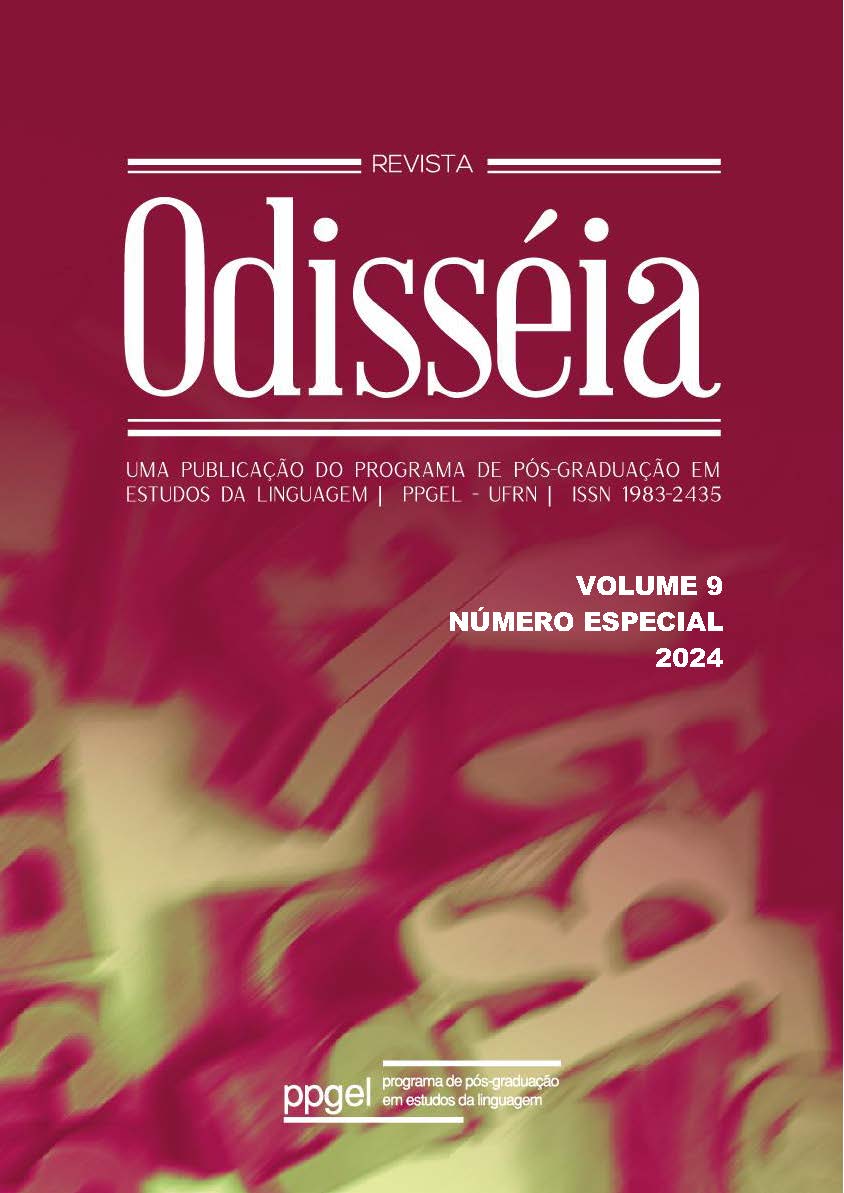Argumentation in the research article: relations between the three argumentation pillars of Classic Rhetoric and rhetorical moves of Genre Analysis
DOI:
https://doi.org/10.21680/1983-2435.2024v9nEspecialID34692Keywords:
Argumentation, Classic Rhetoric, Research Article, Genre, Rhetorical MoveAbstract
Argumentation is part of various communicative spheres, including academia, despite the myth of pure objectivity and neutrality in this discourse. The objective of this study is to propose a reflection on the relation between the three pillars of persuasion of Classical Rhetoric (Aristoteles, 2013) and the rhetoric moves attributed to the research article developed by Genre Analysis (Swales, 1990). For this purpose, firstly, we established relations between the three pillars of Aristotelian persuasion and the rhetorical moves of research articles. Then, we selected four articles published in well evaluated journals that have been registered on the Federal University of Santa Maria (UFSM) Periodical Portal. Subsequently, we identified the rhetorical moves in the corpus and confirmed our hypotheses of the relation between them and the pillars of persuasion. This corpus analysis revealed that the argumentation pillars are present in research articles in different rhetorical moves and that a rhetorical move can evoke more than one pillar.
Downloads
References
ARISTÓTELES. Retórica. Tradução Edson Bini. São Paulo: EDIPRO, 2017.
BESSA, C. O arrazoado por autoridade e a modalização discursiva: fenômenos semântico-argumentativos no artigo científico. In: NASCIMENTO, E. P.; BESSA, C. M. B. (org.). A argumentação nos gêneros científicos e acadêmicos: a construção de sentidos e o uso da palavra alheia. João Pessoa: Editora UFPB, 2020. p. 95-110.
BRAET, A. C. Ethos, pathos and logos in Aristotle’s Rhetoric: a re-examination. Argumentation, v. 6, n. 3, p. 307-320, 1992.
GARCÍA NEGRONI, M. M. Subjetividad y discurso científico-académico. Acerca de algunas manifestaciones de la subjetividad em el artículo de investigación en español. Revista Signos. Pontificia Universidad Católica de Valparaíso, Chile, v. 41, n. 66, p. 5-31. 2008.
HALLIDAY, M. A. K.; MATTHIESSEN, C. M. I. M. Halliday’s introduction to
functional grammar. 4. ed. Oxon: Routledge, 2014.
GIL, I. T. M. Retórica e argumentação: continuidade e rupturas. Máthesis, n. 14, p. 69-80, 2005.
LIMA, M. A. A retórica em Aristóteles: da orientação das paixões ao aprimoramento da eupraxia. Natal: IFRN, 2011.
MOTTA-ROTH, D. Análise crítica de gêneros: contribuições para o ensino e a pesquisa de linguagem. DELTA: Documentação e Estudos em Linguística Teórica e Aplicada, [S. l.], v. 24, n. 2, p. 341-383, 2008.
MOTTA-ROTH, D.; HENDGES, G. R. Produção textual na universidade. São Paulo: Parábola Editorial, 2010.
NASCIMENTO, E. P.; BESSA, C. M. B. A argumentação nos gêneros científicos e acadêmicos: a construção de sentidos e o uso da palavra alheia. João Pessoa: Editora UFPB, 2020.
SANTIAGO, C. Argumentação: A retórica antiga, a nova retórica e a perspectiva enunciativo-dialógica. In: LIBERALI, F. et al. (org.). Argumentação em contexto escolar: Relatos de Pesquisa. Campinas: Pontes Editores, 2016. p. 15-34.
SILVA, M. F. Apresentação. In: SILVA, M.F. A retórica em Aristóteles: da orientação das paixões ao aprimoramento da eupraxia. Natal: IFRN, 2011. p. 9-13.
SWALES, J. M. Research genres: Explorations and Applications. Cambridge: Cambridge University Press, 2004.
SWALES, J. M. Genre analysis: English in academic and research settings. Cambridge: Cambridge University Press, 1990.
Downloads
Published
How to Cite
Issue
Section
License
Copyright (c) 2024 Odisseia

This work is licensed under a Creative Commons Attribution-NonCommercial-ShareAlike 4.0 International License.
Thisa work has been licensed under Creative Commons - Atribuição - NãoComercial - CompartilhaIgual 3.0 Não Adaptada.


















